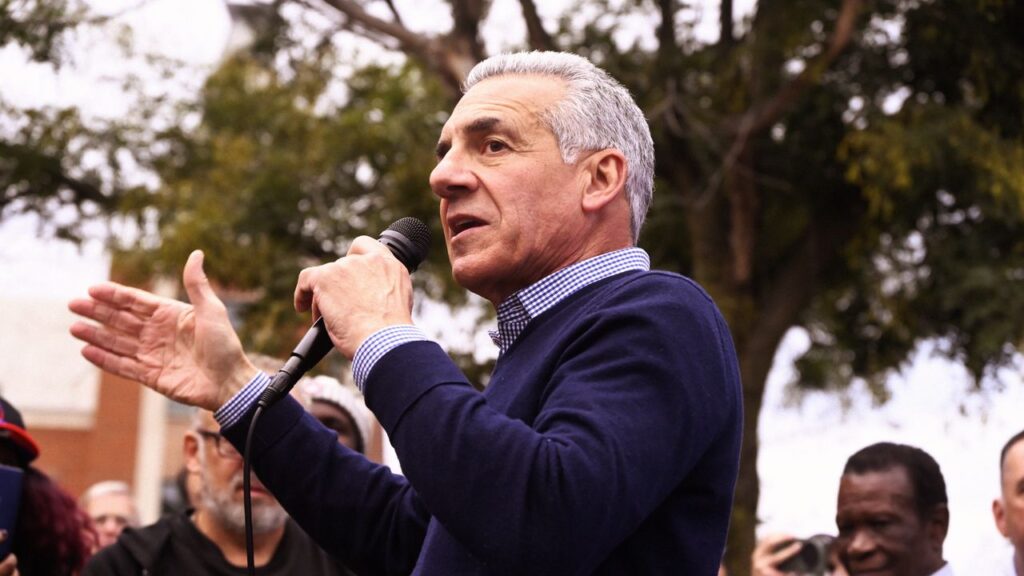On a Wednesday in late October, the two candidates vying to become New Jersey’s next governor are wearing out the state’s Springsteen-sanctified highways in a tight race that’s being watched across the country as a harbinger of next year’s midterms—and as a referendum on President Donald Trump.
In Red Bank, the Republican candidate, Jack Ciattarelli, is making the third of today’s five stops, part of his “Diner Tour,” though this location is more of an upscale bar and restaurant. The place is packed with a surprisingly boozy crowd for a midweek afternoon. Ciattarelli largely owes his status as the nominee to his loyalty to Trump. Yet the president’s approval rating in New Jersey is just 36%. So does Ciattarelli want Trump to come to the state and campaign in the final days of the general election? “He’s helping us,” Ciattarelli tells me noncommittally as he starts to edge away. I try again: Do you want him here in New Jersey? “We’re working in partnership with the White House to do whatever works for the campaign,” Ciattarelli says, turning his back and heading out the door.
Mikie Sherrill, the Democratic nominee, started the day in Atlantic City. Now the four-term congresswoman is up north, in Belleville, at a county Democratic dinner, with the standing ovation from the crowd echoing behind her as she ducks into an empty room. Sherrill, a former Navy helicopter pilot and federal prosecutor, is a disciplined person, and at first she doggedly sticks to her talking points—until I ask about Trump. Then Sherrill leans back from the waist, grimaces, and makes a pained, guttural sound, something like, “Unnhhhh.” It’s spontaneous, funny, and evocative of how viscerally Sherrill feels about the stakes of her race.
There are significant local issues shaping the face-off, including the climbing cost of electricity and tax hikes by the outgoing two-term Democratic governor, Phil Murphy. But New Jersey’s contest is one of only two gubernatorial off-year, statewide elections in 2025, and it is significantly closer than the other matchup in Virginia, where Democrat Abigail Spanberger appears to have a solid lead. Sherrill has been consistently ahead in most polls, but usually by around five or so points. David Wildstein, the founder and editor of the New Jersey Globe—a political news site—and a state Republican insider, thinks the race is even tighter than the public polling shows. “I just caution everybody how wrong Jersey polls have been lately,” he says. “A week before the 2024 presidential election, Kamala Harris was double digits ahead, and Trump came within six.”
That recent history is one reason to believe things are close. Another is that New Jersey’s Democratic registration numbers have been bleeding for years, with independents growing to become the second-largest bloc. A longer-term headwind for Sherrill is that New Jersey voters have not awarded either the Democrats or Republicans a third straight term in the governor’s office since 1961.

